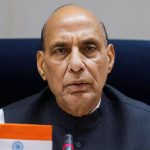Srinagar, July 7: The Jammu and Kashmir Education Department is facing mounting criticism from parents and educatorsover its revised school schedule meant to counter the ongoingheatwave. The newly announced hybrid model, combining early school hours with mandatory post-school online classes, is being slammed as impractical, burdensome, and out of touch with ground realities.
Under the updated directive, schools within municipal areas are to function from 7:30 am to 12:00 pm, while those outside municipal limits will operate from 8:00 am to 12:30 pm. However, what has provoked the most outrage is the department’s decision to mandate online classes for students of Classes 6 to 10 after school hours — despite extreme temperatures and widespread logistical challenges.
Parents, especially working professionals, have voiced strong opposition to the plan.
“Are we supposed to leave our phones at home and go to the office? Who will assist children with online sessions while we’re at work?” asked Imtiyaz Ahmed, a government employee. “This isn’t just inconvenient — it’s absurd.”
Chasfeeda Shah, a mother of two, called the schedule “cruel,” particularly for younger children.
“A five-year-old has to wake up at 5 am to get ready for school and board the bus at 6:30 am,” she said. “The school ends by 11:30 am, but it takes at least 15 minutes more to board the bus, and if the child lives in a far-off locality like Ahmadnagar, they won’t reach home before 1: 30 pm.” Shah also questioned the feasibility of online classes when teachers are instructed to remain at their respective schools until 2 pm. “How are students expected to attend online sessions when their teachers aren’t even available? It’s a policy disaster,” she said.
Taking a direct swipe at the government, she added: “It seems the Education Minister is overburdened with too many portfolios. Perhaps that’s why she’s unable to make the right decisions. There’s no coherent education policy in place, and this entire decision seems designed to please someone who floated the idea of early school timings — not to help students.”
SameenaBhat, a nurse in a Srinagar Hospital, said: “After five hours in this sweltering heat, children are exhausted. Then they are expected to sit through online classes? What kind of planning is this?”
Speaking to Rising Kashmir, Dr AijazSuhaf, Assistant Professor at Institute of Mental Health and Neurosciences (IMHANS) Srinagar, said: “Shifting schools to early morning hours is a practical response to the rising threat of heatwaves. It helps protect children from heat-related illnesses with better cognitive functioning, improved attention spans, and reduced irritability in children. Early school timings may also lower the risk of mood disturbances, heat-induced fatigue and behavioural problems that tend to escalate in high temperatures.” He, however, said that it’s also important to acknowledge the trade-offs — disrupted sleep patterns and added stress on working parents. “The challenge lies in striking a balance through better planning, communication, and support systems,” Dr Suhaf said.
Experts say the department should have prioritised heat-responsive infrastructure, staggered schedules, or academic relaxation instead of burdening young learners with overlapping schooling modes.
“This is not a response. It’s a reaction. And a poor one,” said a Srinagar-based education analyst. With Kashmir battling one of its hottest month in decades, the controversy has snowballed into a larger debate: Does Jammu and Kashmir have a credible education policy, or just knee-jerk decisions masquerading as reform?








